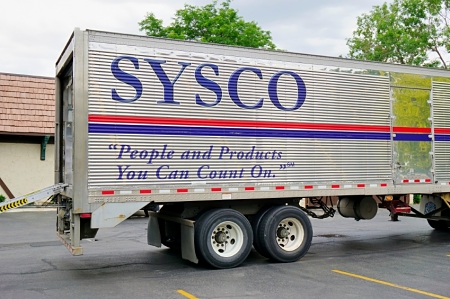Sysco Corp-U.S. Foods merger stopped by feds
A proposed $3.5 billion merger of Sysco Corporation and US Foods will not go forward after a federal judge blocked the deal in late June.
The Federal Trade Commission (FTC) sued to block the deal, saying the merger would “eliminate significant competition in the marketplace.” Federal Judge Amit Mehta sided with FTC. After Mehta’s ruling, Sysco decided to pull out of the merger and now faces a $300 million breakup fee payment to US Foods and a $12.5 million fee to Performance Food Group, which would have been the third entity involved in the merger.
Sysco and U.S. Foods together operate more than 13,000 trucks, which ranks them among the largest private fleets in the United States. Sysco ranks No. 2 and US Foods ranks No. 5 on the list of the largest private carriers in the United States, Canada and Mexico.
A combined Sysco-US Foods would have created a national broadline food-service distributor with an estimated 75 percent share of the market for goods supplied to such large customers as restaurant and hotel chains, hospitals and schools, FTC said. The FTC said the deal would result in higher prices due to reduced competition. Sysco had fought for more than a year to gain government approval for the transaction, arguing that the deal would bring $1 billion in savings, letting it offer lower prices to customers.
Judge Mehta’s 128-page ruling said the Sysco-US Foods merger, announced in December 2013, was the type of large combination that lawmakers were concerned about long ago when they gave the government the power to halt mergers.
“The proposed merger of the country’s first and second largest broadline foodservice distributors is likely to cause the type of industry concentration that Congress sought to curb at the outset before it harmed competition,” the judge wrote.
Judge Mehta said the would-be merger was of considerable national importance, citing statistics showing Americans now spend more money a month in restaurants and bars than in grocery stores.
The judge sided with the FTC on the crucial point in the case: how to define the food distribution market for the purposes of deciding whether the merger could harm competition and lead to higher prices for consumers.
He agreed with the FTC that there was a separate market for distributors like Sysco and US Foods that offered comprehensive products and services to restaurants and other businesses. He rejected arguments from the companies that their size and power should be considered against the backdrop of the entire $231 billion foodservice distribution industry, which includes thousands of competing regional, local and specialty food distributors.
The judge said smaller distributors may compete with Sysco and US Foods in some circumstances, but they didn’t have the capabilities to serve customers in the same full-service manner with a broad range of product offerings.
Judge Mehta said large national customers rely particularly heavily on the top food distributors. Food service management companies like Sodexo and Aramark and hospitality companies like the Hilton and Interstate hotel chains do a significant amount of their purchases through Sysco and US Foods, he said.
The judge said the FTC’s claim that the merger would harm local markets in many cities wasn’t as strong as its arguments about the merger’s effect on the national market. Nevertheless, the judge said the FTC’s case was good enough to prevail on that issue, too.
Sysco and US Foods also fell short in their arguments that their proposed sale of assets to the No. 3 distributor, Performance Food Group Inc., would boost the smaller firm enough for it to replace any competition being eliminated by the merger.
The judge said Performance’s five-year business plan “shows that post-merger PFG will not be nearly as competitive as US Foods is today.”
Judge Mehta rejected another key argument by the companies, related to the cost-savings the merger would create. Sysco and US Foods said their joining would produce $500 million or more in annual efficiencies, savings that could be passed along to customers through better prices and service. The judge suggested a significant chunk of those cost-savings could be achieved independent of the deal.
The judge made statements during last month’s court proceedings that indicated he believed there were some flaws with the economic data and analysis compiled by the FTC in support of its case. Judge Mehta reiterated that sentiment in his written opinion, but said the agency’s analysis still better reflected real-world business conditions than the economic analysis offered by the companies in rebuttal.






